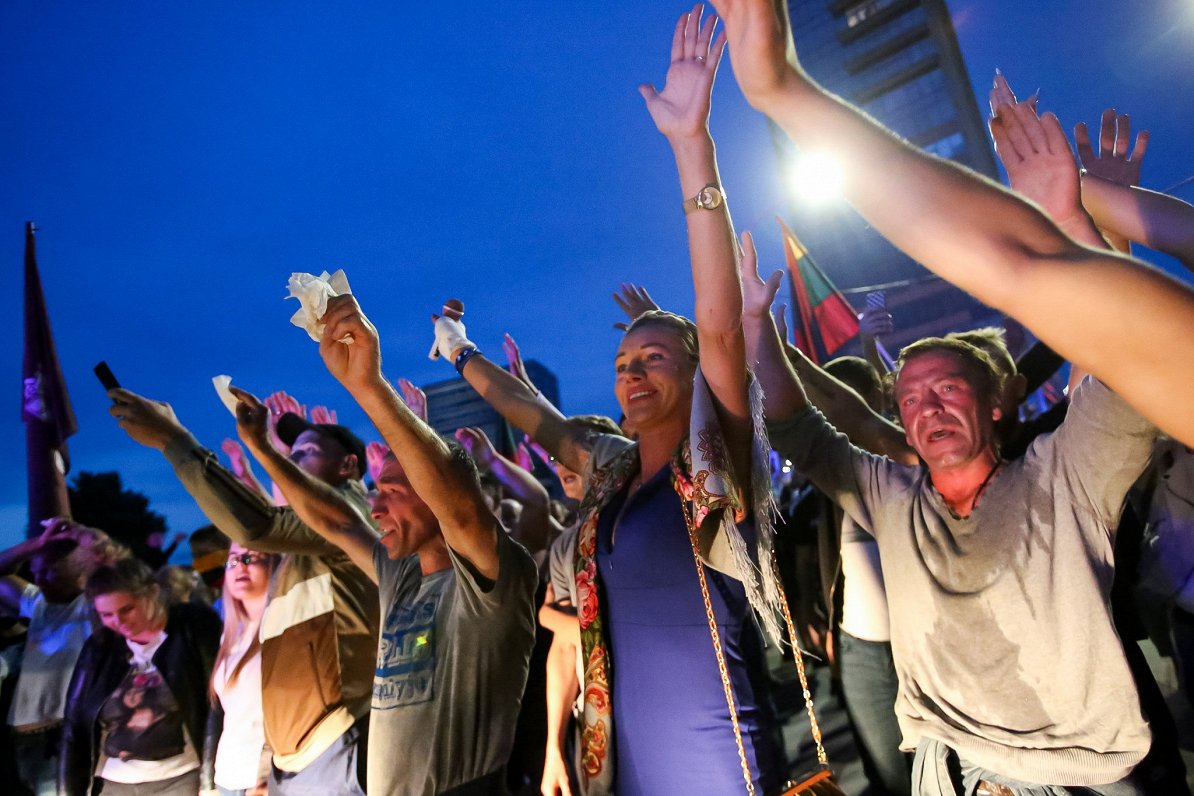At the moment, energy is vibrating in the “Hanseatic platform” and the final preparations are underway for the premiere of the contemporary chamber opera “Time Present” on August 14 and 15.
The chamber opera was created by visual artists Krista and Reinis Dzudzilo together with composer Krista Auznieks. The production reveals itself in four scenes, measuring the path from silence to the birth of the opera.
The contemporary chamber opera was created under the influence of Kristi Auznieks’ Grand Music Award-winning composition “Fire and Rose”, inspired by the poetry work “Four Quartets” by Thomas Sterne Eliot. The composition “Fire and Rose” is part of the opera “Time Present”, but the culmination of the new production is Auznieks’ new work “There is one”, premiered by the chamber orchestra “Sinfonietta Riga” conducted by Normunds Šnē together with soloist, countertenor Jānis Šipkēvics.
Between rehearsals, Latvian Radio 3 “Klasika” meets with all three chamber opera creators – visual artists Krista and Reini Dzudzilo, composer Kristi Auznieks and also soloist Jānis Šipkēvics, who joins at the end of the conversation. But at the beginning of the conversation, the artists discover why the full name of the opera is so important, including the English Time Present, which literally means a gift of time.
Reinis Dzudzilo: We thought for a long time what to call this opera – or just “Now”, or [to papildināt ar] “Time Present”, which in some ways is even more beautiful. The Latvian language is very beautiful, and we know how many Latvian speakers there are and that it is good to continue to cultivate it, but this “Time Present”, the first two words of Eliot’s first quartet, seemed worth putting them in the title of the work. – precisely because of the presence of a “presenter”. It is a gift to each of us.
Signe Lagzdiņa: But what does the present mean to you?
Reinis Dzudzilo: Just yesterday we touched on this topic – that the three of us have been talking for a long time now and have always done so, but yesterday we realized that we have never participated in a joint interview. So this is the first present for all three of us – the first interview in the present.
The present is life. When death occurs, the present disappears.
Of course, the present always tends to the future and often becomes the past – almost always. Consequently, it seems to continue to exist in a different way. Also in the case of Eliot, who is very present to us.
Krists Auznieks: Or the present – as in the case of Eliot – is something that is inevitable.
The past is already past, and the only form in which it exists is the present.
Our only approach to reality is in the present, so memories, tradition, interpretation, interpretation of history – they all exist only in the present. Like our dreams, our desires, our projections for the future, they all exist only in the present. So then
the present is all that is, and the only that is.
I remember, Krist, one of our conversations in which you said that music and sound are basically the present, that music is never the future or the past.
Krists Auznieks: Yes, there is such a line in Eliot’s poem.
Krista Dzudzilo: But I remember one conversation with Christ some time ago, in which he admitted that living only in the future, because composers live only in the future. But “Times Present” is also a visual art. And
what Christ has just said is nothing else. Or – all times are simultaneous at all times …
Reinis Dzudzilo: … and becomes an eternity. As the composer Krists Auznieks said when we went to “Fire and Rose” – the program wrote that this work builds a sonic space in which to seek eternity. In the “present” we continue to search for this eternity and would like to hope that we will find it from time to time. (..)
Krista Dzudzilo: And to sum it all up, “Times Present.” Is our joint work, which is rooted in a three-person conversation and then a three-person art language conversation.
More and more – in the record.
–
Latvijas Radio invites to express its opinion on what is heard in the program and supports the discussion among the listeners, however, reserves the right to delete comments that violate the boundaries of dignified attitude and ethical conduct.


